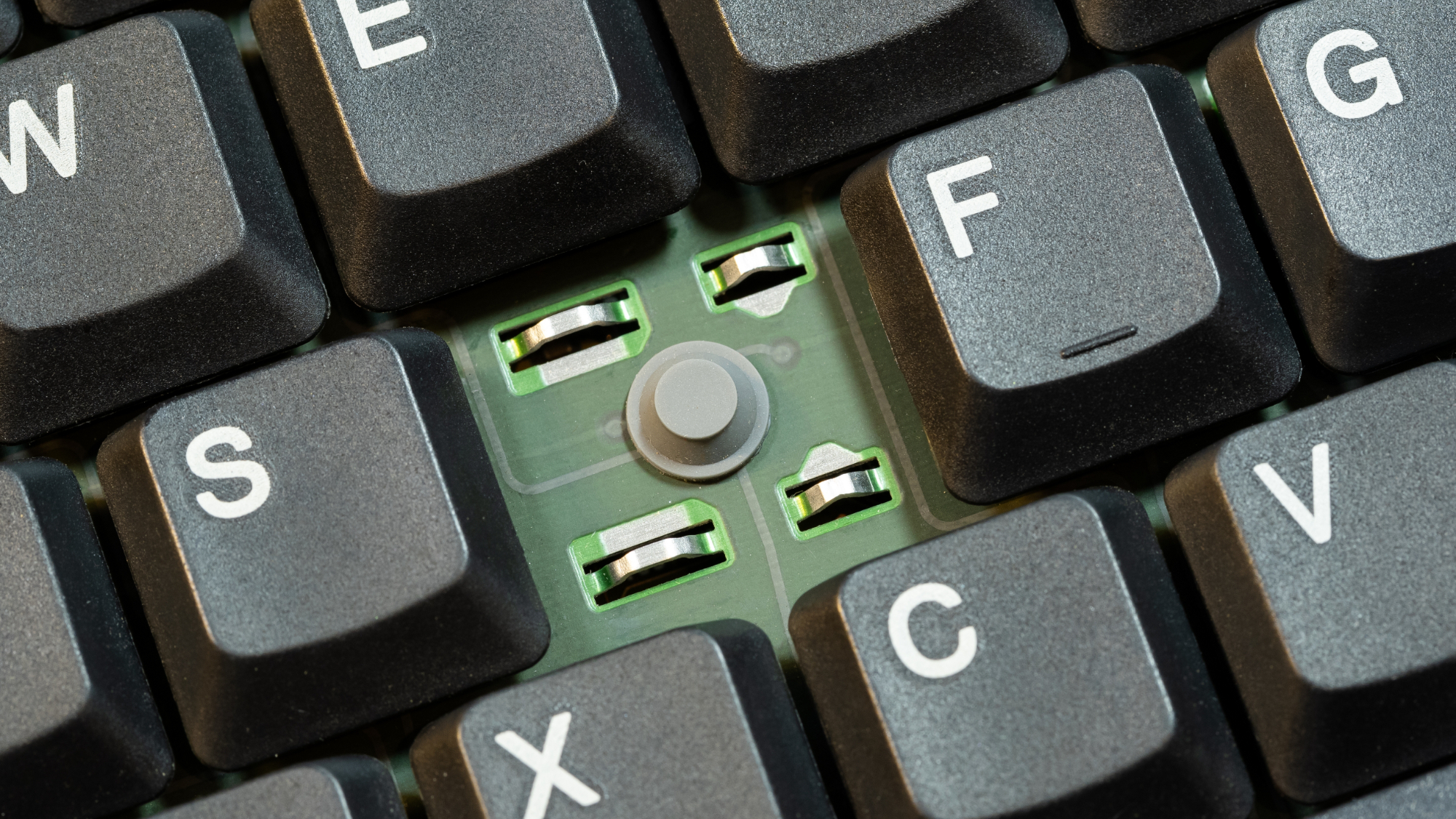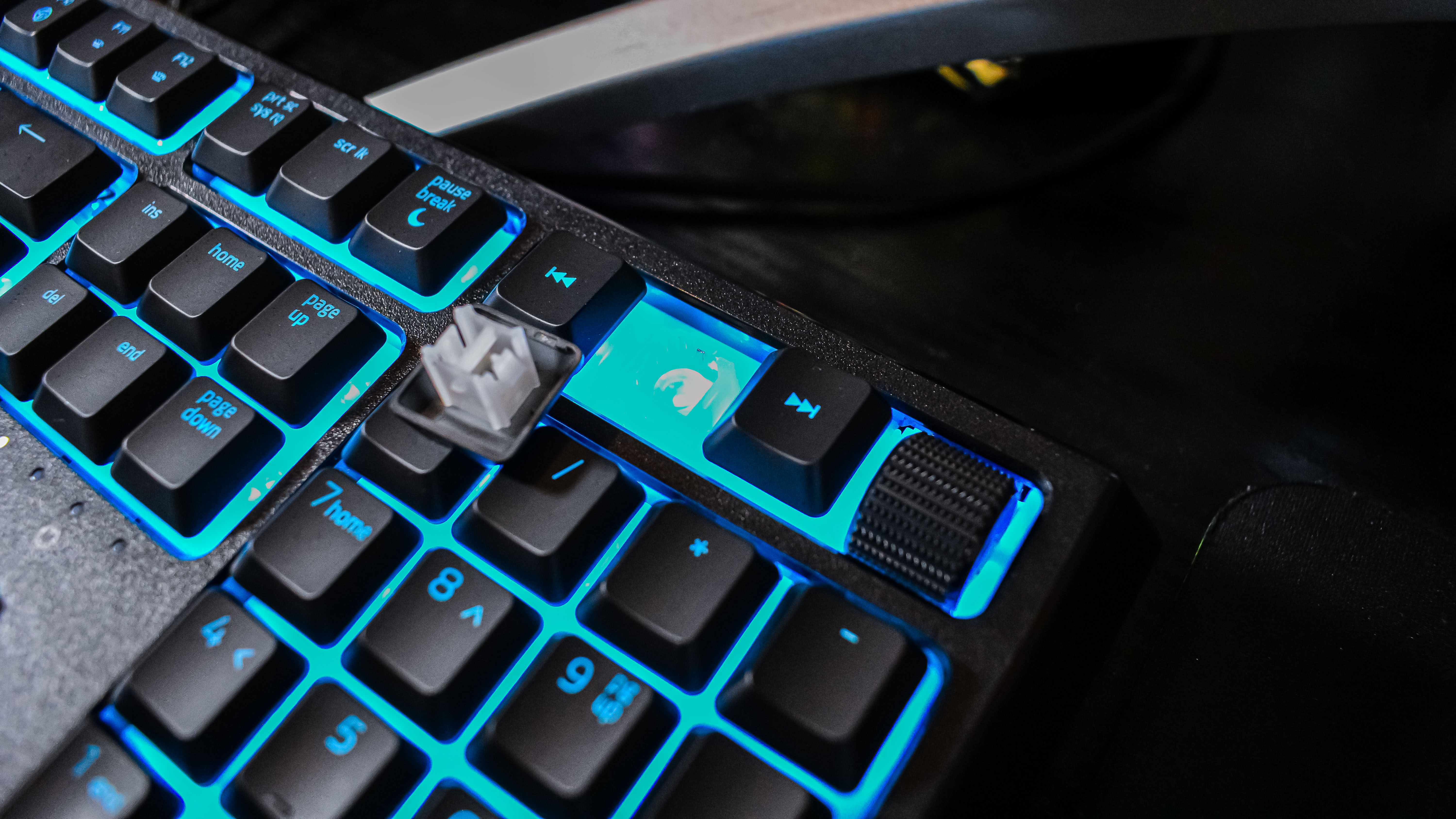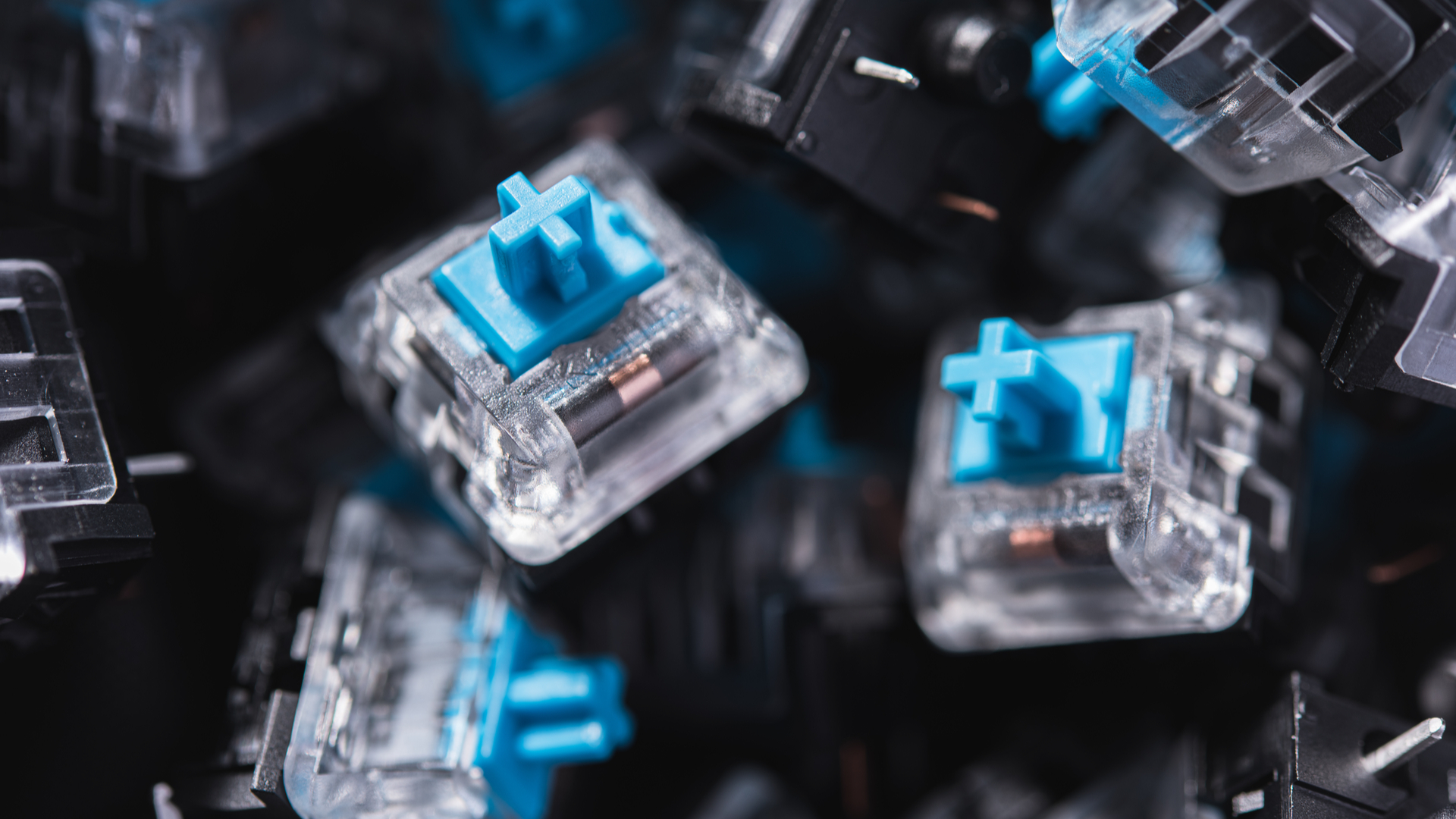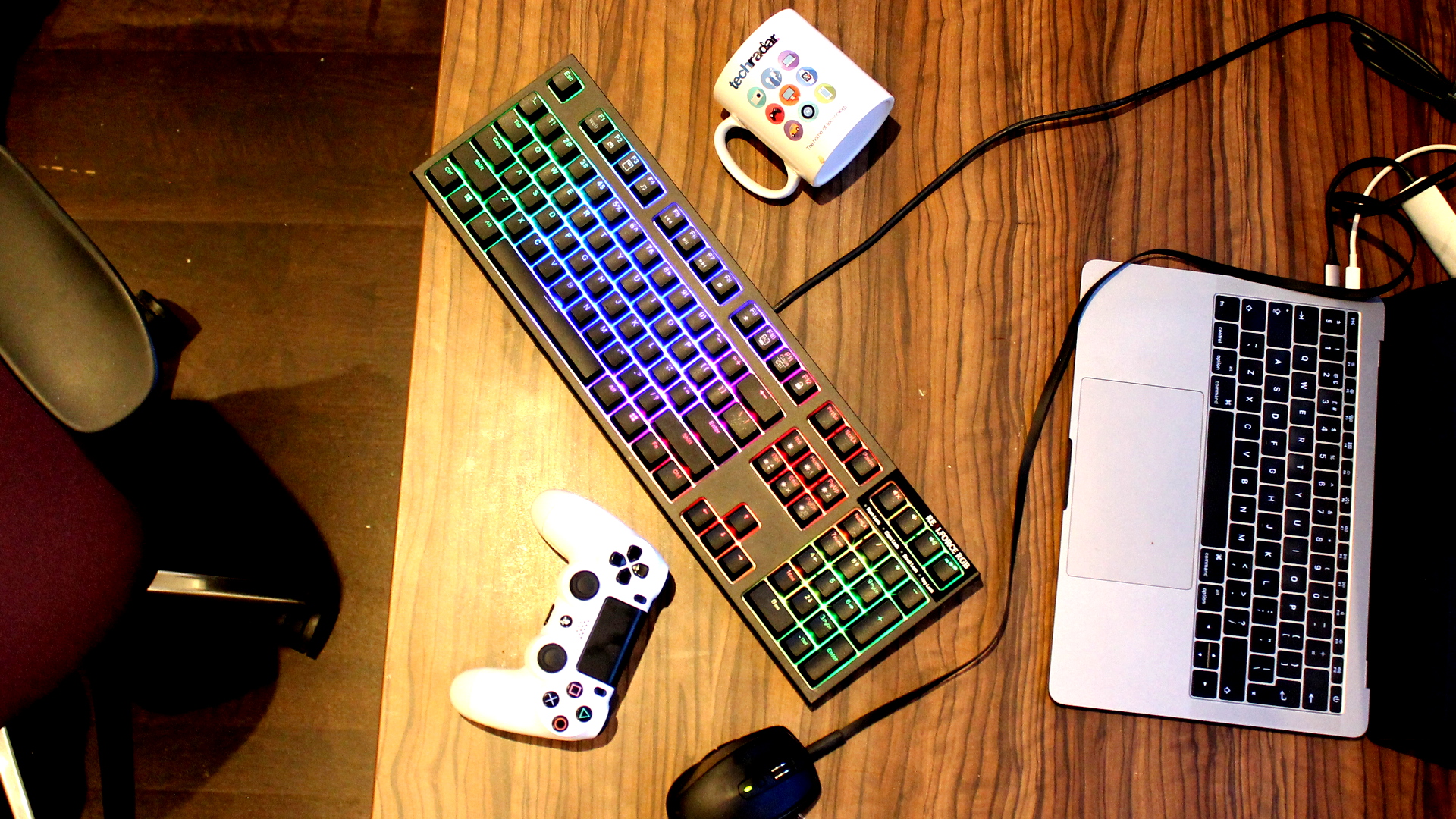Are membrane keyboard switches good for gaming?
Too squishy for shooters?

Sign up for breaking news, reviews, opinion, top tech deals, and more.
You are now subscribed
Your newsletter sign-up was successful
Keyboard switches are small components built into each key on your keyboard that register the input when you press a button. There are countless different types of switches to choose from when you’re looking to buy one of the best gaming keyboards, which might feel a little bit intimidating, so you might start thinking… can I just stick to regular old membrane switches, which are found in any garden-variety keyboard, for gaming?
You’ll have to consider a range of factors when deciding what switches you may want for your go-to gaming keyboard, and there are benefits as well as downsides to bear in mind when opting for a membrane option over mechanical or optical switches (which are more commonly found in gaming keyboards). Membrane switches can be cheaper and are a perfectly viable option for gaming for most players - but that doesn't mean you shouldn't consider upgrading.
Membrane keys feel a bit different from mechanical switches, with a 'squishier' feeling to them. In my experience, some people prefer this, while others hate it, so there's nothing wrong with going to a physical computer hardware store and tapping at some keys to get a feel for what works best for you. But if you're still on the fence, here's a more detailed breakdown to help you make a decision.
Is the price right?
One of the main reasons you may want to opt for membrane switches for gaming over more mainstream mechanical or optical models is the price difference. You can pick up a Razer Ornata V3 X, which has membrane switches, for as little as $39.99 / £33.99 / AU$71.95 - whereas the Razer Blackwidow V4, a similar style of keyboard but with mechanical switches instead of membrane, starts at $139.99 / £129.99 / AU$234.95.

Most standard office keyboards also feature membrane switches, meaning you don’t even have to pay a premium for ‘gaming’ products; if you do decide on a membrane keyboard because you're on a tight budget, you could instead pick up a cheap office keyboard for around $10 / £10 / AU$20, so long as you’re happy with a minimalistic design and basic performance.
More or less precise?
One major downside of using membrane switches for gaming over some other switch options is the lack of a distinct actuation point on each key, meaning that there isn’t a consistent, precise depth where the key registers an input when you press it. This can make it difficult to execute your inputs with precision compared to the exact actuation of a mechanical keyboard, although the difference in input here will be down to milliseconds.
This means that realistically, unless you’re a professional or high-level player, the difference in precision you get from a mechanical keyboard when compared to membrane switches won't make a significant difference to you. For those who are gaming casually and not particularly fussed about competitive play (or you mostly play single-player games that don't demand fast-paced button presses), a membrane keyboard is a completely viable option that won't disadvantage you.
Sign up for breaking news, reviews, opinion, top tech deals, and more.
One notable upside of membrane key switches is that they're significantly quieter than most mechanical switches. Some mechanical switches (usually color-coded blue) are 'clicky', meaning that they produce an audible click upon reaching their actuation point, but even 'linear' and 'tactile' switches (red and brown, respectively) are noisier than membrane keys.

Will they last you a lifetime?
Another downside when opting for membrane switches can be the lifespan of the switches themselves. Membrane switches are not made to survive millions of keypresses like mechanical switches or optical switches are, meaning that your keys may stop working or face other input registration issues much sooner. The average mechanical keyboard switch is typically rated for 50 to 100 million presses, while membrane switches are usually rated in the 5 to 10 million range.
As membrane switches begin to break down, they can also become less responsive, which can pose a major issue when gaming - so while they may still be fine for typing, they won’t be ideal for gaming as the switches age.
However, as noted earlier, membrane keyboards are much cheaper, so replacing them is much more affordable - but of course, that's still inconvenient, and there's a reasonable argument to be made that buying a longer-lasting mechanical keyboard is the more environmentally conscious move, since it can help reduce e-waste.
So… are membrane switches good for gaming?
Overall, membrane switches are a perfectly viable option for gaming, particularly for the casual gamer or those who aren’t playing at a high or competitive level. While using mechanical switches can potentially give you an advantage, this will be so minimal for most players that it likely won’t impact your games, particularly when playing slower-paced games.

However, the main downside of membrane switches is that their lifespan is significantly lower than mechanical switches. This means that you may need to replace your keyboard more frequently, so it's worth considering how often you're going to use your keyboard.
If you plan to use your keyboard infrequently, and you're only going to be playing casual games, then a membrane keyboard is a perfectly good choice. But if you want to use your PC every day - and perhaps you plan to work on it regularly as well as play games - then it's worth ponying up a little extra cash to get yourself a mechanical keyboard.
You might also like...
- I’ve played with some of the best gaming keyboards around, but this analog model is the one I keep coming back to – here’s why
- I tested the SteelSeries Apex Pro Mini Gen 3 and think it’s one of the best analog keyboards around – but it'd make a serious dent in my wallet
- I haven’t seen an analog keyboard as cheap as the MonsGeek FUN60 Ultra – but its performance surprised me even more after testing it

Jasmine is a gaming hardware and tech journalist with an appreciation for all things others dare to call boring or complicated.
Previously of GamesRadar and The Mirror, Jasmine has reviewed and covered hundreds of devices from laptops to sound bars, monitors to cameras and almost everything in-between.
In her spare time, Jasmine enjoys playing games that make her rage and building PCs, which also makes her rage – as well as spending time with her three cats. Crazy cat lady in the making!
You must confirm your public display name before commenting
Please logout and then login again, you will then be prompted to enter your display name.